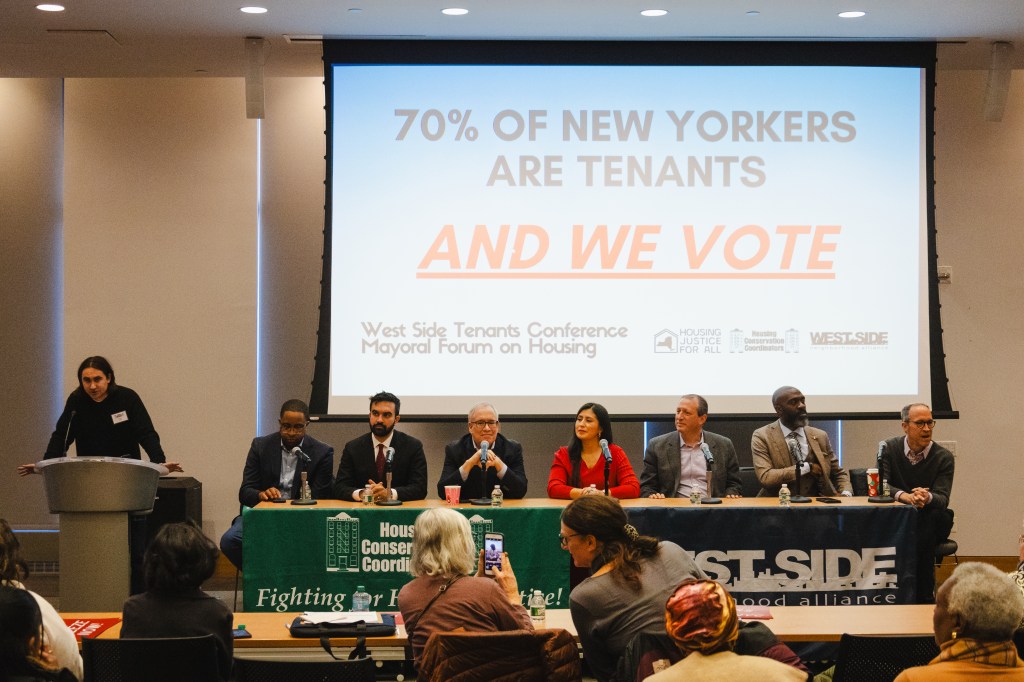With the specter of a special summer state legislature session looming in the middle of July, Mayor Michael Bloomberg’s congestion pricing plan continues to breathe even as some legislators and civic groups continue to hammer away at the plan.
The legislature failed to vote on Bloomberg’s proposal before ending session on Thursday night June 21; however, proponents are targeting a July passage for New York to be eligible for up to $500 million in federal funds to implement the project.
For the first time, city officials unveiled plans for those federal funds. They would acquire 367 more buses at a cost of $207 million, make improvements to infrastructure, install signal priority system for buses as well as spend $72 million for a headquarters to administer billing for the system.
However, those proposals were not enough for some including City Councilmember David Weprin and the Queens Civic Congress - a borough-wide group of more than 100 local associations - who gathered recently on the steps of City Hall to denounce the plan calling it nothing more than another tax.
“This goes against what we are trying to do in good fiscal time,” Weprin said referring to the $4.4 billion surplus the city is currently enjoying.
Bloomberg’s plan would charge cars $8 and trucks $21 to enter Manhattan south of 86th Street during the week from 6 a.m. to 6 p.m., in order to decrease traffic in the central business district as well as curtail environmental problems.
In addition, Weprin and some area businesses expressed concern about the negative impacts the charge would have on their business as well as the potential ramifications for consumers.
FreshDirect, a food delivery company based in Long Island City, which ships and delivers thousands of orders per week into Manhattan, issued a statement to The Queens Courier saying it shares Bloomberg’s desire to ease congestion in Manhattan and believes that its service saves customers from taking taxis or cars to shop for groceries. However, it called the plan to charge trucks high fees to enter Manhattan counterintuitive.
“Ultimately, charges for trucks delivering into Manhattan, whether to residential homes or retail locations, will be shouldered by city residents,” the statement read. “The fees on commuter vehicles are meant to drive commuters to mass transit, but the only effect of fees on commercial vehicles will be higher prices for New Yorkers.”
Meanwhile, Howard H. Roberts Jr., the president of New York City Transit, an umbrella organization of the Metropolitan Transportation Authority, which supports Bloomberg’s proposal, said that many subway lines are already near capacity.
“It’s bad news,” Roberts said, according to published reports. “There’s no room at the inn.”
In addition, Gene Russianoff, a senior attorney for the Straphangers Campaign, recently called on state leaders to pass Bloomberg’s plan in order to raise money so that the MTA could avoid raising fares.






























